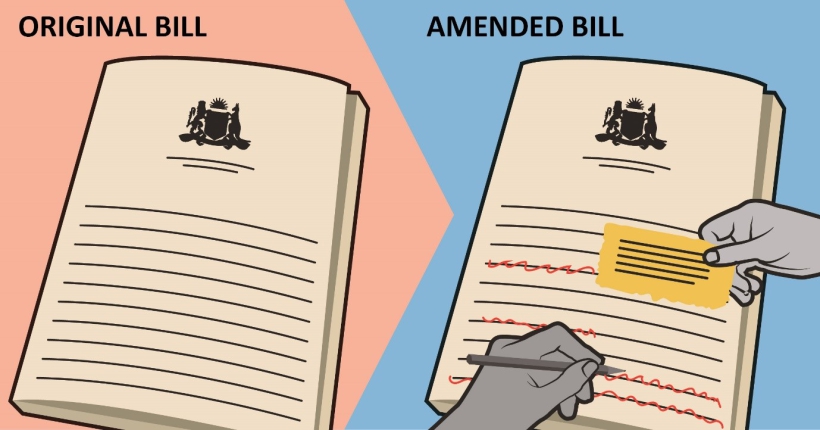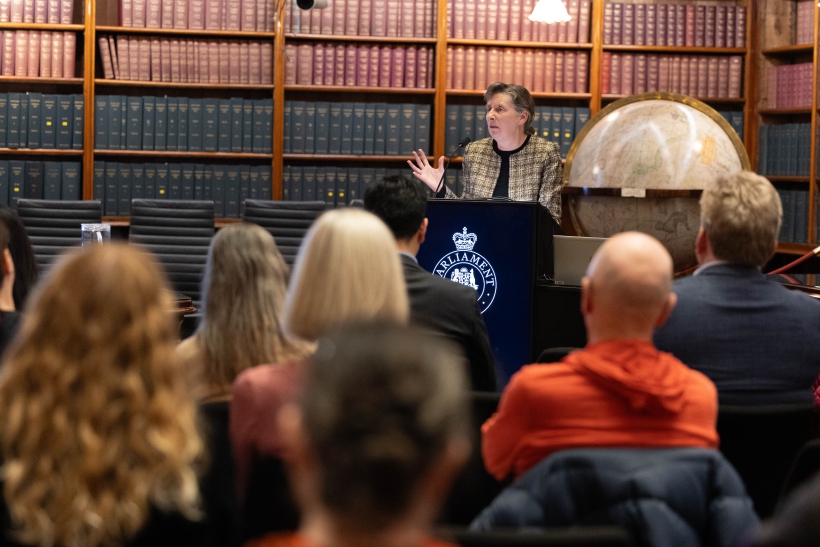
Bills that are introduced to Parliament often look quite different to the laws they eventually become.
As a bill passes through the Houses it can be changed many times by many members of Parliament. How are these amendments proposed and how do they become a part of the bill? In each House of NSW Parliament, this process is handled slightly differently but achieves the same outcome.
In the Legislative Assembly, this process is called ‘Consideration in Detail’ and in the Legislative Council it is called ‘Committee of the Whole’.
| Consideration in Detail | Committee of the Whole |
|
|
|
|
|
|
|
|
|
|
|
What do members include in their amendments?
An amendment needs to describe the exact words it is changing and the change itself. For example, an amendment intended to add a new section will identify the relevant page and line number and detail the exact words to be added.
These amendments are usually written by the NSW Parliamentary Counsel’s Office at the instruction of the member wishing to move an amendment. This means that experts in law writing with knowledge of the structure of the bill as a whole can ensure the intended legal effect of the amendment is achieved.
What happens to these amendments?
Bills must pass both houses in the same form before they can become law. If a bill is amended in one house, it must always go back to the other to be passed there before being assented to by the Governor and becoming law.
There is, however, an exception to this rule. Under the Constitution Act 1902, the Legislative Assembly must originate and pass any bills ‘appropriating revenue or moneys for the ordinary annual services of government’. If such a bill is subsequently rejected or amended in the Legislative Council, the Assembly may still direct that the bill be presented to the Governor for assent, notwithstanding the Council’s actions.
To find out more about the legislative process, take a look at our animation explaining how a bill is passed.



